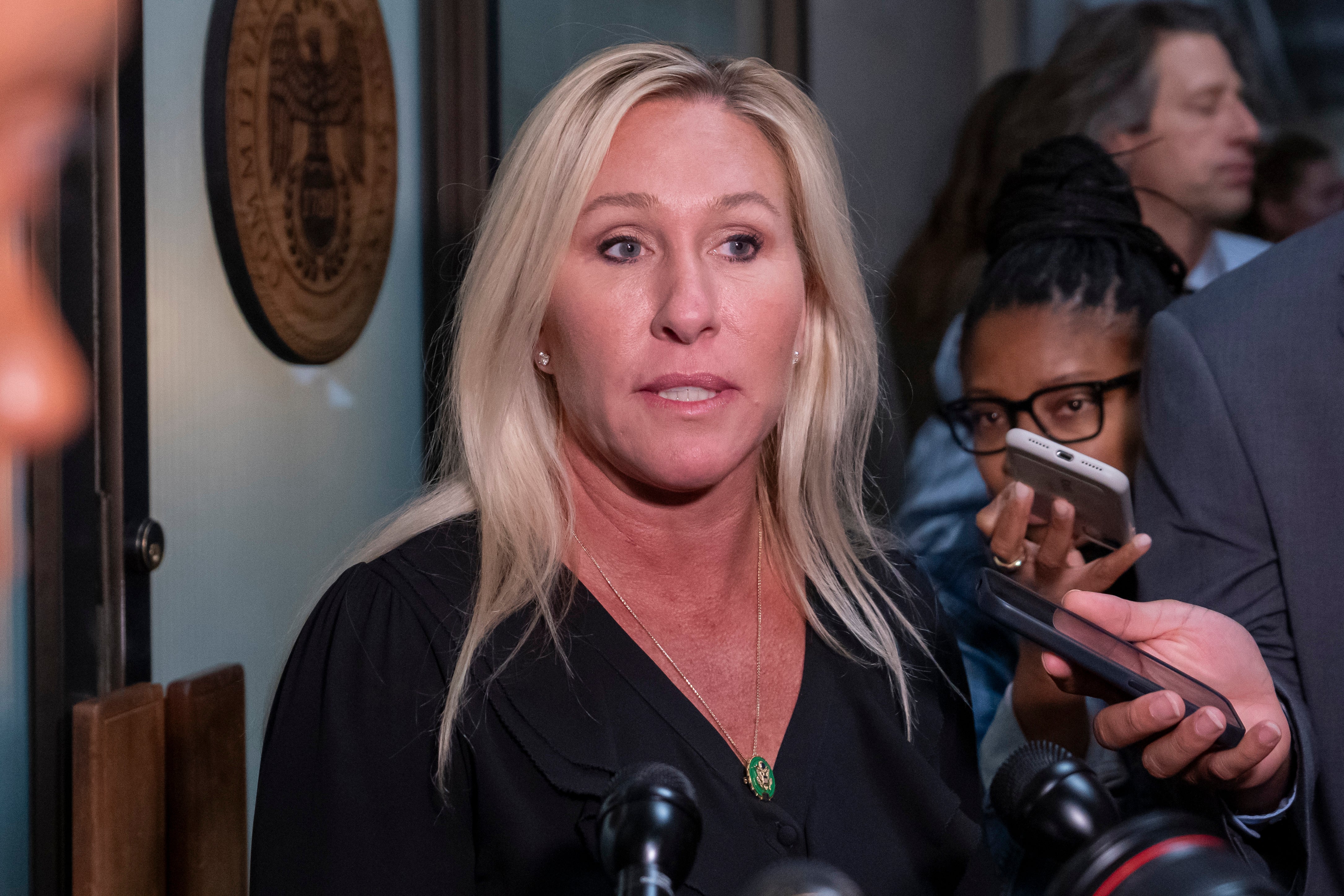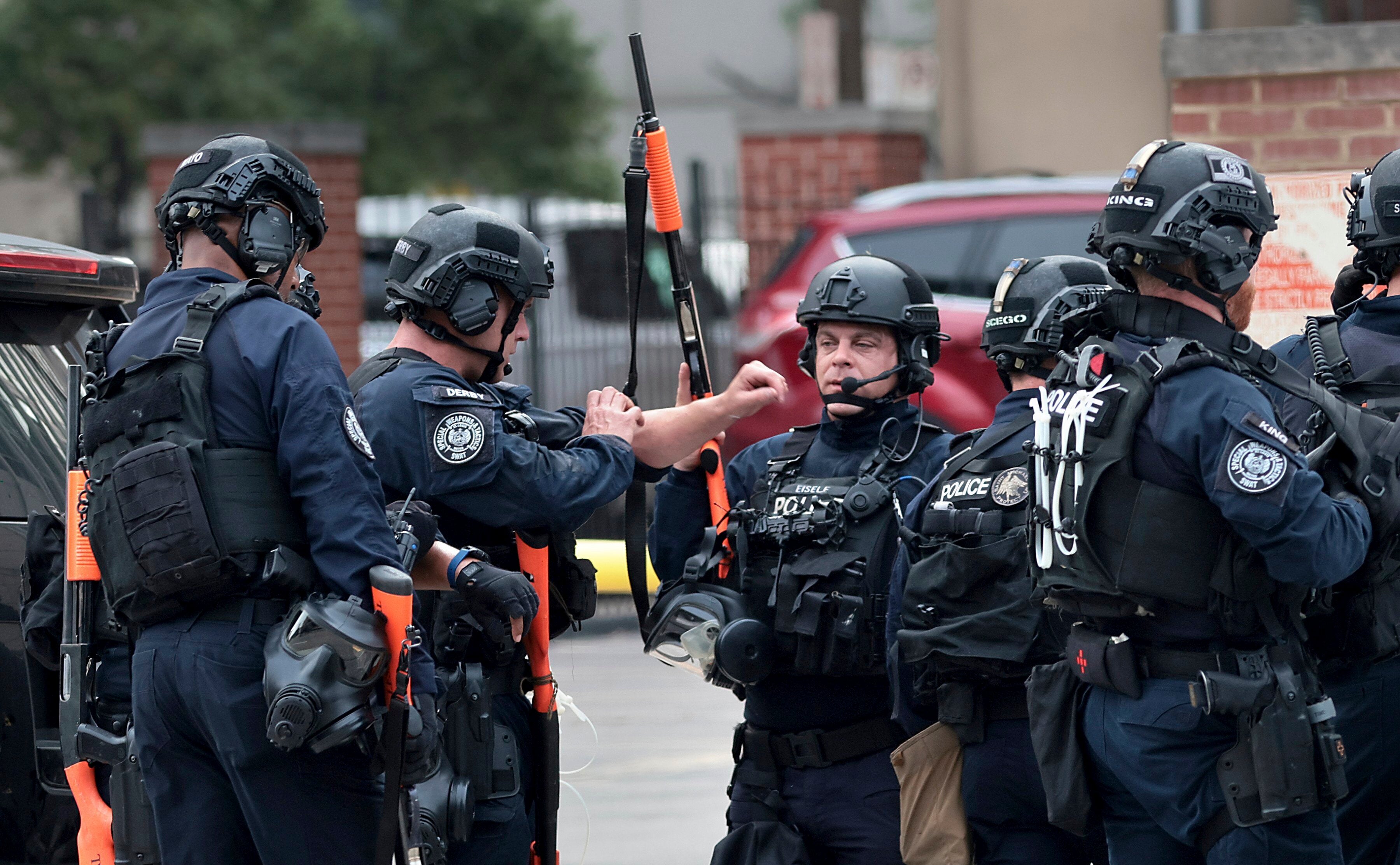Boston mayor targeted in string of Christmas ‘swatting’ incidents at politician homes
Michelle Wu is the third lawmaker to be targeted with hoax callout on Christmas
Boston Mayor Michelle Wu has confirmed her home was swatted on Christmas Day, one of at least three political figures to be targeted by a hoax emergency call out in a single day.
The Boston Police Department said it was investigating after being called to a shooting and hostage situation at Ms Wu’s family address in Roslindale at about 5.30pm, according to WBUR.
Dispatchers received a 311 call from a man who claimed he had shot his wife and had tied her and another man up at the home, police said.
When armed officers and EMT crews arrived at the address, they quickly realised it was the mayor’s home and that the callout was a fake.
Ms Wu told WBUR it was a shock to have Christmas Day interrupted by the flashing police lights outside her home, but that her family had grown accustomed to it after being targeted several times since her election in November 2021.

“For better or worse, my family are a bit used to it by now, and we have a good system with the department,” Ms Wu told the site.
Ms Wu was recently the subject of intense criticism after her office mistakenly invited white city councillors to an annual holiday dinner for “Electeds of Colour”.
Boston police are investigating whether the swatting incident is connected to previous fake police callouts, and no arrests have been made. Her office did not respond to a request for comment by The Independent.

GOP firebrand Marjorie Taylor Greene also said she had been swatted for the 8th time while she was at home with family in Rome, Georgia, on Christmas Day.
Local officials said that an individual based in Rome, New York, made a call to the suicide hotline claiming to have shot his girlfriend at Ms Greene's address in Georgia and threatening to kill himself.
Police then contacted Ms Greene's local security liaison and the police response was cancelled.
And GOP Congressman Brandon Williams announced on X/Twitter that he was swatted on 25 December, with state troopers and sheriff’s deputies showing up five patrol vehicles to his home in upstate New York.
The situation was quickly defused, and Mr Williams said he sent the officers home with homemade cookies and spiced nuts.
“Thankful for law enforcement working today (& every day),” Mr Williams said.
The US Capitol Police and local law enforcement are investigating both incidents.

Swatting incidents, where a person calls in a false report of an emergency, crime, mass shooting, or kidnapping in progress, placing the homeowner at risk of being shot by armed responders, have become a growing public threat in recent years.
Tactical response teams such as SWAT and bomb squads are often called on to respond, placing resident’s lives in danger and tying up police resources.
Celebrities, public figures, and online gamers are frequently targeted, while hoax callouts to synagogues, churches, universities, sports stadiums are also becoming more common.
In March, authorities in New York recorded 36 false reports of mass shootings in a single day across the state, prompting callouts to 226 schools.
Senator Chuck Schumer called the incidents “dangerous, disturbing and downright terrifying”, and urged the FBI to “supercharge their federal cyber investigative capabilities”.
In June, the FBI launched a national database to track swatting incidents and share information between hundreds of police departments and law enforcement agencies across the country.
Advances in technology has allowed swatters to disguise their voices and hide their location, and arrests appear to be rare.
Earlier this month, the FBI’s Joint Terrorism Task Force announced it had arrested a juvenile in Orange County, California, who was believed to be part of a swatting ring that had targeted religious, educational, and public institutions over the summer.
In March, Ashton Connor Garcia, 20, was charged with 10 felony counts for making more than 20 swatting calls in the US and Canada that prompted emergency responses.
Federal prosecutors said Mr Garcia used voice-over-internet technology to conceal his identity and broadcast the calls on the social media platform Discord for entertainment.

